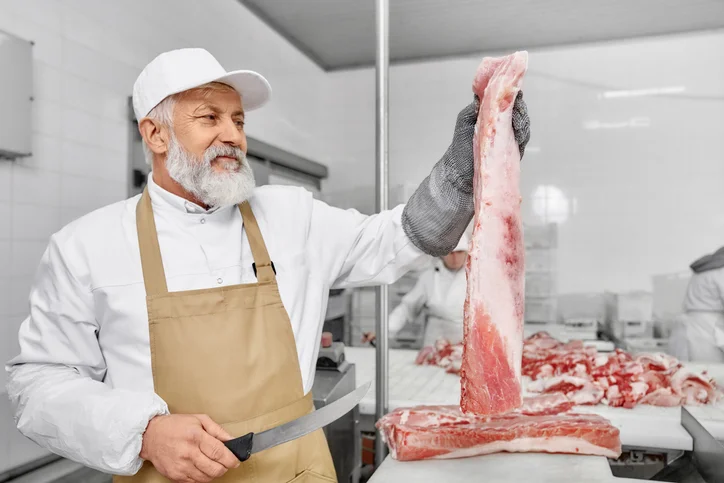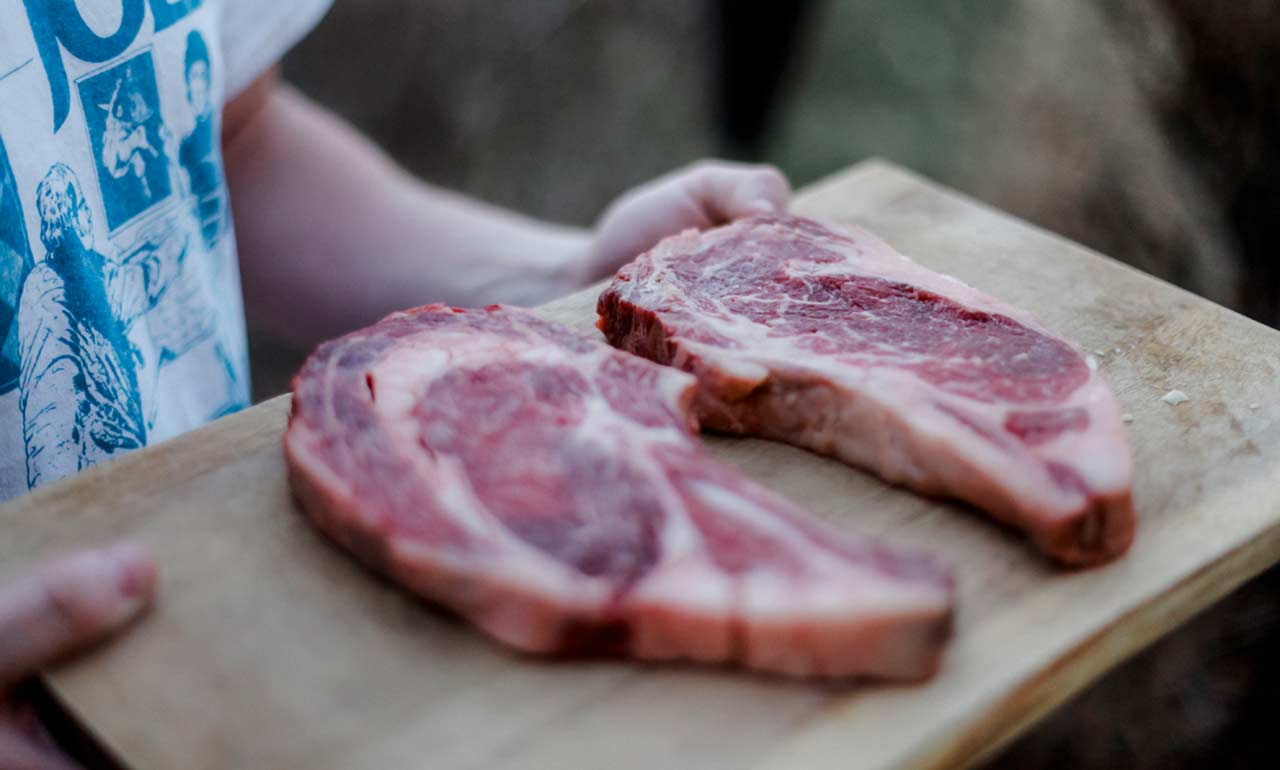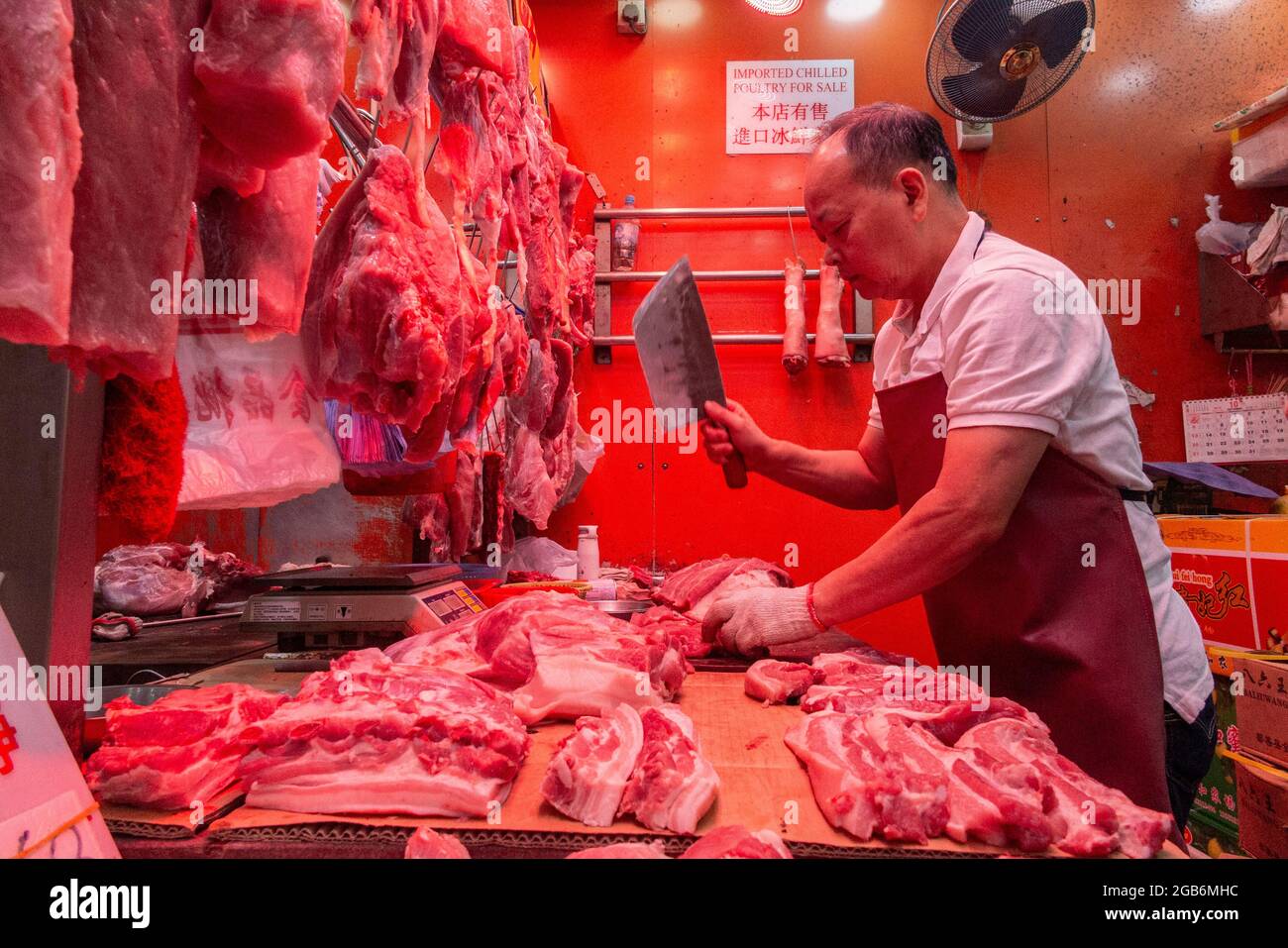A Look at the benefits of sourcing from farmer's meat market near me.
Discover the Advantages of Buying at a Meat Market: Freshness and Quality Explained
Purchasing at a meat market offers unique benefits, especially pertaining to quality and top quality. Local sourcing plays a vital role in making certain that meat retains its nutrients and vitamins. In addition, comprehending meat grading enables consumers to make enlightened options regarding cuts. In addition, experienced butchers offer useful understandings tailored to individual choices. These components combined create an engaging case for choosing meat markets over traditional supermarket. There is more to discover about the overall experience they supply.
The Quality Factor: Why Neighborhood Sourcing Issues
Customers frequently seek comfort in their buying behaviors, the advantages of neighborhood sourcing at meat markets can not be overemphasized. Regional meat markets normally provide fresher products contrasted to huge supermarkets, as the meat is frequently sourced from nearby farms. This closeness lowers transportation time, leading to much less time from farm to table. The quality of locally sourced meat not only boosts flavor yet also sustains much better nutrition, as the meat keeps much more vitamins and nutrients.
In addition, neighborhood sourcing fosters a closer relationship between producers and consumers, advertising openness in the food supply chain. Buyers can ask about the farming methods, animal well-being, and handling techniques employed by neighborhood suppliers. This link commonly brings about a better sense of depend on in the quality of the meat. Eventually, choosing neighborhood meat markets allows customers to enjoy fresher products while sustaining their community's economy and lasting practices.
Quality Cuts: Recognizing Meat Grades and Selection


When choosing meat, customers should also consider the cut kind-- varying from tender cuts like filet mignon to harder cuts like brisket, which might require slow food preparation approaches. In addition to grading, quality plays a significant role. A reputable meat market commonly gives detailed details regarding sourcing and managing practices, enabling customers to pick cuts that line up with their preferences. By recognizing these facets, consumers can with confidence choose top quality meats that improve their cooking experiences.
Personalized Solution: Structure Relationships With Butchers
Building a relationship with butchers can substantially improve the buying experience at a meat market. When customers establish a relationship with their butcher, they take advantage of personalized service that expands beyond plain transactions. Educated butchers agree to share understandings regarding cuts, cooking techniques, and preparation techniques customized to private choices.
This link allows consumers to receive referrals for certain cuts based upon their needs, whether for an everyday dish or a special celebration. Additionally, an acquainted butcher is more most likely to bear in mind past purchases and choices, making future visits extra reliable and satisfying.

Range and Specialized: Checking Out Unique Meat Options

Additionally, clients might encounter one-of-a-kind local selections, such as heritage breeds and specialty fowl, which supply distinct tastes and appearances. Some meat markets also supply personalized cuts tailored to cooking techniques or details dishes, boosting the overall shopping experience. The experienced butchers frequently share dishes and cooking tips, better elevating the value of the distinct offerings. In general, the variety discovered in meat markets not just broadens culinary horizons yet additionally presents shoppers to top notch, fresh items that can elevate any kind of meal.
Sustaining Local Economies: The Area Impact of Meat Markets
Meat markets play a vital duty in sustaining local economic climates by promoting partnerships in between consumers and local producers. They function as considerable hubs that connect local farmers and ranchers with neighborhood participants, ensuring that money distributes within the area. This practice not only reinforces the local farming sector but likewise advertises sustainable farming techniques, as consumers become much more knowledgeable about where their food stems.
In enhancement, meat markets usually prioritize sourcing from neighborhood suppliers, which lowers transport expenses and environmental influence (edwardsville meat market). This focus on regional products develops tasks within the area, meat delivery near me from farming to retail, adding to overall financial stability. By purchasing from these markets, customers help maintain little organizations, which are fundamental for the vibrancy of local economic situations. Ultimately, shopping at meat markets supports a healthy and balanced community that profits both consumers and manufacturers, fostering a feeling of community while enhancing the local economy
Frequently Asked Inquiries
What Are the Normal Hours of Procedure for Meat Markets?
Regular hours of operation for meat markets vary, yet most open in between 7 AM and 9 AM, surrounding 6 PM to 8 PM. Some may have expanded hours on weekend breaks or unique holiday routines.
Do Meat Markets Deal Delivery or Online Buying Options?
Many meat markets do offer delivery and online buying options, though schedule may differ by location. Clients must examine individual market sites or call them directly to verify particular solutions and setups used.
How Can I Locate a Regional Meat Market in My Area?
To locate a neighborhood meat market, one can utilize on-line internet search engine, inspect local directory sites, or ask community participants for suggestions. Going to farmers' markets may additionally lead to discovering nearby meat suppliers.
Are There Any Subscription or Loyalty Programs Readily Available for Regular Shoppers?
Numerous local meat markets supply subscription or commitment programs to constant consumers - bagley's meat market. These programs normally give discount rates, exclusive offers, and unique promos, encouraging consumers to return while enhancing their shopping experience and fostering community connections
What Payment Techniques Are Accepted at Meat Markets?
Most meat markets approve various payment techniques, including cash, credit score cards, and debit cards. Some might also supply mobile settlement options, making certain ease for clients while accommodating diverse preferences for purchases during their shopping experiences.
Regional meat markets generally offer fresher products compared to large supermarkets, as the meat is typically sourced from nearby farms. Understanding meat grades and choice is necessary for customers looking to make informed choices at meat markets. Meat grading systems, such as those established by the USDA, classify meat based on variables like maturation, marbling, and shade. What one-of-a-kind meat choices can one find at a meat market? To find a neighborhood meat market, one can utilize online search engines, inspect local directory sites, or ask area members for suggestions.